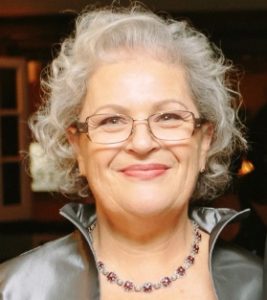You are here: Home » WWOT: Weekly Words of Torah » Weekly Words of Torah » Shabbat Message: “Three Funerals and a Birth”
Shabbat Message: “Three Funerals and a Birth”
By Agnes Emert
WLCJ Vice President
 Two of my relatives passed away in the past two months. As he was 5 years older, my cousin and I did not interact much growing up, but I did spend many years of summers and holidays with his younger siblings and their mother, well into our young adulthood. Then life, distance, and procrastination intervened. At the time of his funeral, about 15 years had passed since any of us had seen or spoken to one another. I learned many things about the life my cousin led. He was a good friend and boss, a loving husband and father to whom family meant everything. His sons and son-in-laws worked with him and would now carry on his legacy. Some of his siblings I did not recognize. There were husbands, children and grandchildren I had never met. We hugged and kissed, exchanged emails, and promised to keep in touch. Will we? I don’t know. For some days, I felt simultaneously very sad – heartache-y – and glad. Melancholy as memories of shared occasions long, long ago fought with all the times never shared. Glad because it was so very nice to know they were.
Two of my relatives passed away in the past two months. As he was 5 years older, my cousin and I did not interact much growing up, but I did spend many years of summers and holidays with his younger siblings and their mother, well into our young adulthood. Then life, distance, and procrastination intervened. At the time of his funeral, about 15 years had passed since any of us had seen or spoken to one another. I learned many things about the life my cousin led. He was a good friend and boss, a loving husband and father to whom family meant everything. His sons and son-in-laws worked with him and would now carry on his legacy. Some of his siblings I did not recognize. There were husbands, children and grandchildren I had never met. We hugged and kissed, exchanged emails, and promised to keep in touch. Will we? I don’t know. For some days, I felt simultaneously very sad – heartache-y – and glad. Melancholy as memories of shared occasions long, long ago fought with all the times never shared. Glad because it was so very nice to know they were.
As we live in the same city, we only chatted with my cousin (thrice removed) at major events of my distant relatives, most recently at a wedding over a year ago. When we heard he was in the hospital, my husband convinced me we should go. Both he and his wife were very surprised but appreciative to see us. While I didn’t really want to go to his funeral, again, my husband pressed. I was glad. Most of his relatives were out of town and so few of us were in attendance.
Most recently, a very dear acquaintance passed away suddenly. That is, it was sudden for me, as I did not know she had been ill – I was not a friend. I did know her to be soft spoken and direct, caring, honest, supportive, and genuine as she counseled me from time to time. I was not surprised at the capacity-filled chapel, I was not surprised by the outpouring of love and honor as Rabbis, Cantors, relatives, and friends spoke. I learned many things about the life she led – her passion for the Dodgers, family, friends, and shul (I think, in that order); her no-nonsense advice that everyone sought; her generosity of time, money, and heart. She was dearly beloved. Selfishly, I reflected on the life I lived.
My husband asked me what I was writing about for this article. I told him “funerals and how they evoke the past.” “Oh good,” he said, “I think funerals look to the future, our tradition has a wonderful way of keeping alive our past – naming our children.” And he’s right. Our grandson’s Hebrew name is Yitzhak, my father-in-law of blessed memory. Levi will know his great-grandfather – that, although he lost his first wife and children and was held prisoner during the War, he never lost his faith and love of Judaism; how he kept the holidays and traditions, privately, in their apartment in Russia when it was dangerous to do so; his courage and strength to emigrate in his 60s so his son can have a better life, marry, have children and grandchildren – Levi.
I look forward to Yom Kippur. While considered the holiest and most solemn day of the year, for me, it is one of hope and joy, of contentment and peace. Now is the time to reflect on the life I live. Now is the time to take stock of all my “sins,” especially those of omissions, those unsaid and undone. Now is the time to mourn our lost friends and family – yes, lost conservations, lost hugs, lost memories to make. Now is the time to mourn lost opportunities for kindness, understanding, and assistance. And, no matter how difficult, beforehand, I must ask forgiveness and forgive in return.
God willing, afterward, I am at peace with the world and of my place in it. I am content with the “content” of my blessed life. I am filled with joy for the sparkling clean, pure New Year, and bursting with hope for the possibilities.


